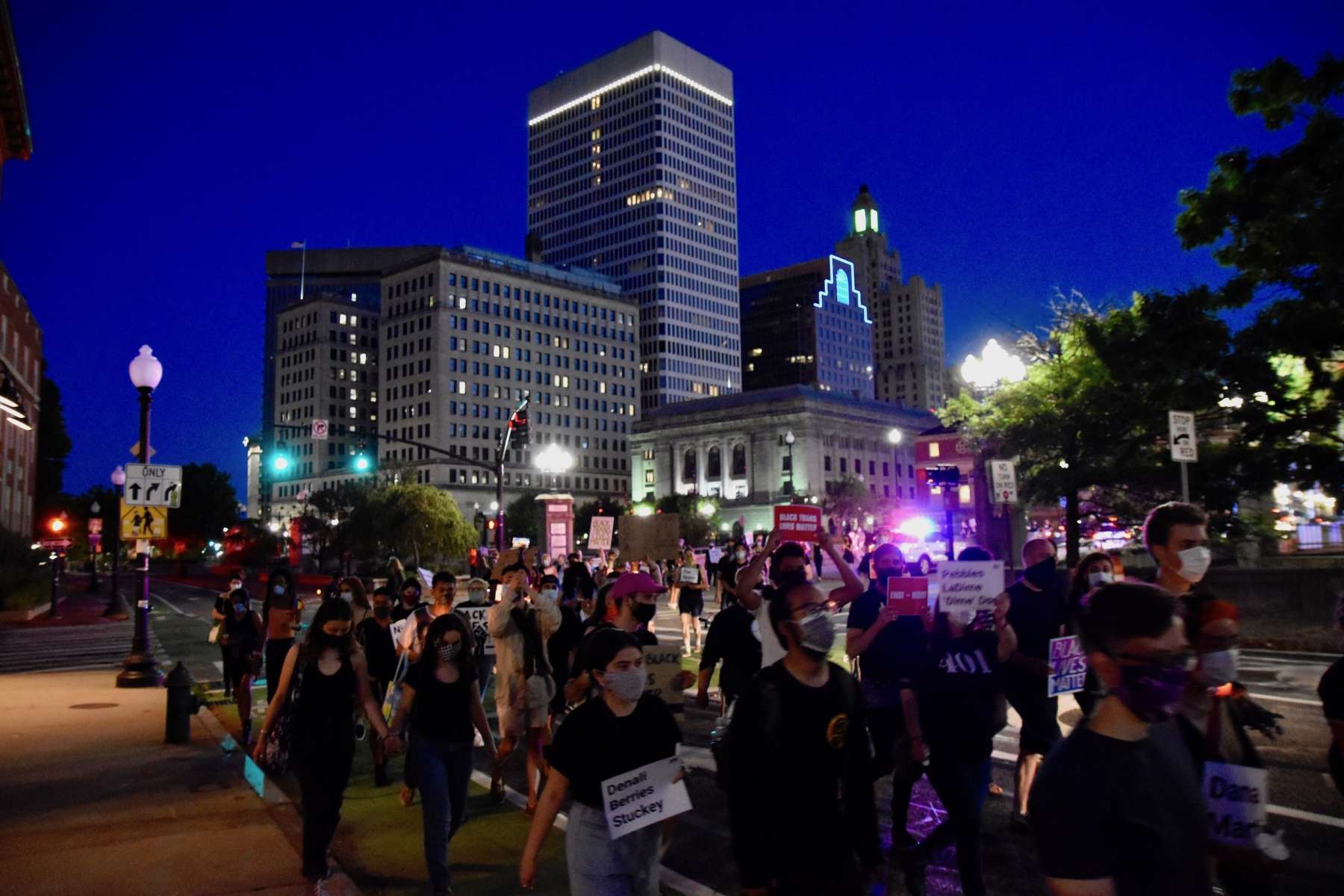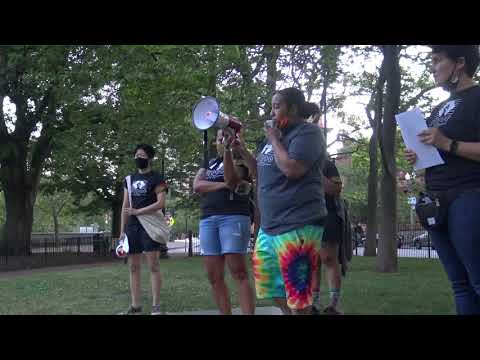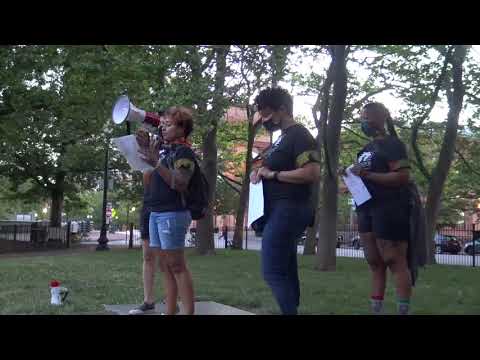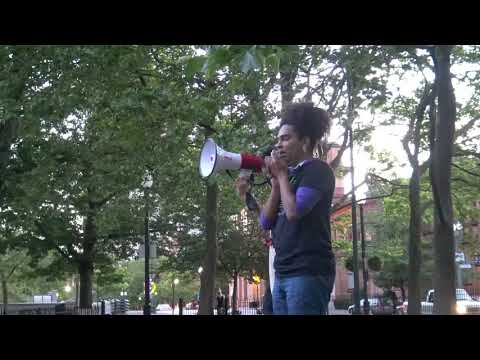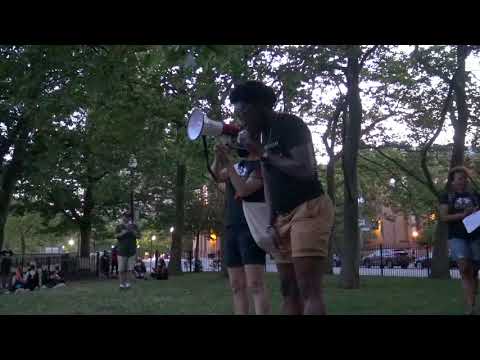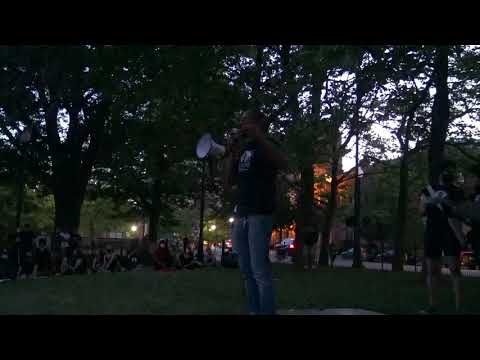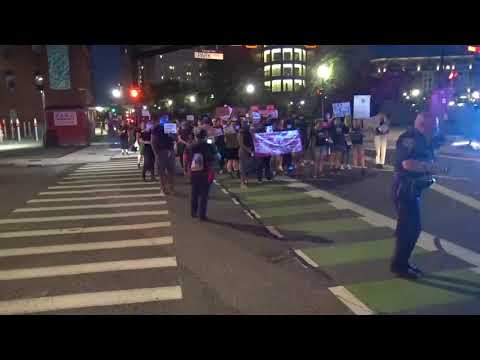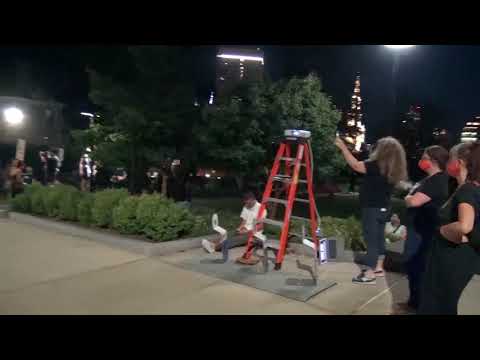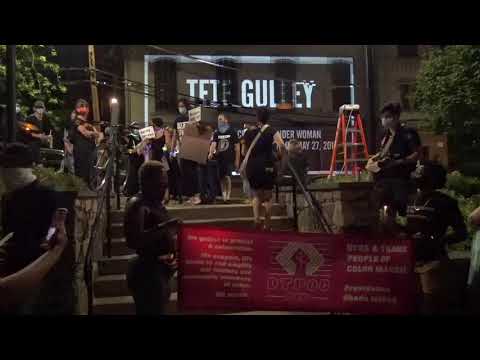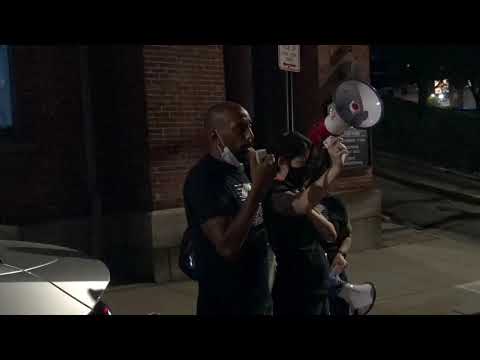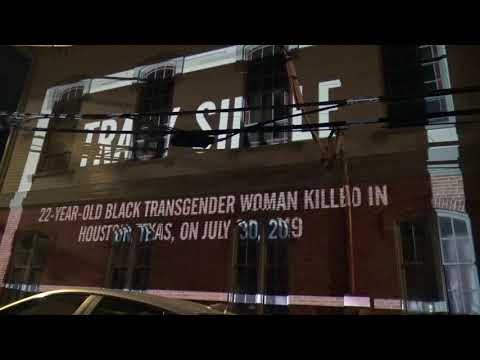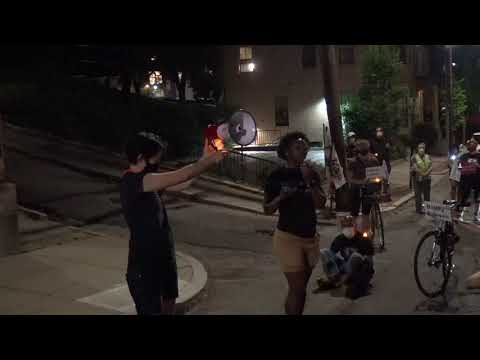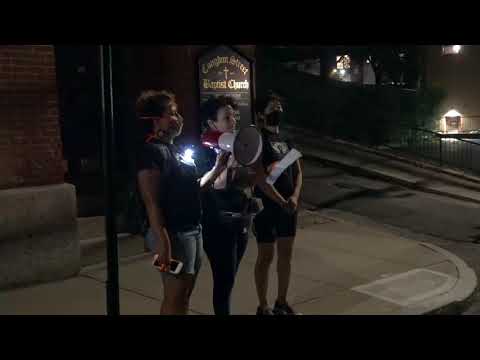Providence’s Annual Dyke and Trans People of Color March
“I’m grateful to be a member of this church, and to be a part of the Black community as an out, queer person, because I recognize it has not always been a safe space for everyone,” said O’Sha, putting the projection into perspective. “Oftentimes spaces of faith feel like conflicting spaces for people of queer experience. And that’s something that
June 20, 2020, 11:00 am
By Uprise RI Staff
“I’m grateful to be a member of this church, and to be a part of the Black community as an out, queer person, because I recognize it has not always been a safe space for everyone,” said O’Sha, putting the projection into perspective. “Oftentimes spaces of faith feel like conflicting spaces for people of queer experience. And that’s something that should be named…“
On Friday evening Providence’s Second Annual Dyke and Trans People of Color (DTPOC) March left Burnside Park downtown for a silent march that ended at the Congdon Street Baptist Church on College Hill. Along the way the march paused at the site of the Hard Scrabble “Riot“, a Black neighborhood in which working-class whites destroyed multiple Black homes in 1824. Not too far away is the site of Snow Town, where a similar attack destroyed Black homes in 1831.
As local educator and historian Marco McWilliams noted when he address the crowd at Burnside Park, “Particularly in this period, when you hear ‘race riot’ a little indicator shown come off in your mind that this typically means a Black community, living autonomously, living with self-determination, that is read as a threat to white civil society. And they just need any excuse to go and demolish that community.”
These “riots” led to the formation of the Providence Police Department, noted McWilliams.

The second site the march paused at was on Meeting Street, behind the fire station, which used to be a school for African-American children, said McWilliams. “These are spaces we move through all the time and we have no consciousness – Black invisibility…
“But we’ve been here, and we’ve been making culture here, and we’ve been living here, and we’ve been living in resistance, and that’s still what we’re dong here today,” said McWilliams.
Here’s the video:
Land acknowledgment from Desiree, a part of the Wampanoag Nation:
Ancha Santana:
“…the hard work isn’t calling for how we dismantle systems,” said Justice Ameer Gaines, “The hard work is how we heal from the way these systems have destroyed our communities…”
“It is our time now to not just memorialize those who have passed but to make room for those who are present,” said O’Sha, a educator with a “fervent passion for transformative education.”
Marco McWilliams:
The march was silent, and beautiful:
Upon reaching Congdon Street Baptist Church, those in the march were greeted by a projection of the names of trans women of color murdered in the United States in the last 18 months. The projection was done by The Womxn Project.
Marco McWilliams:
The projection, in full:
“I’m grateful to be a member of this church, and to be a part of the Black community as an out, queer person, because i recognize it has not always been a safe space for everyone,” said O’Sha, putting the projection into perspective. “Oftentimes spaces of faith feel like conflicting spaces for people of queer experience. And that’s something that should be named…”
Photos:



